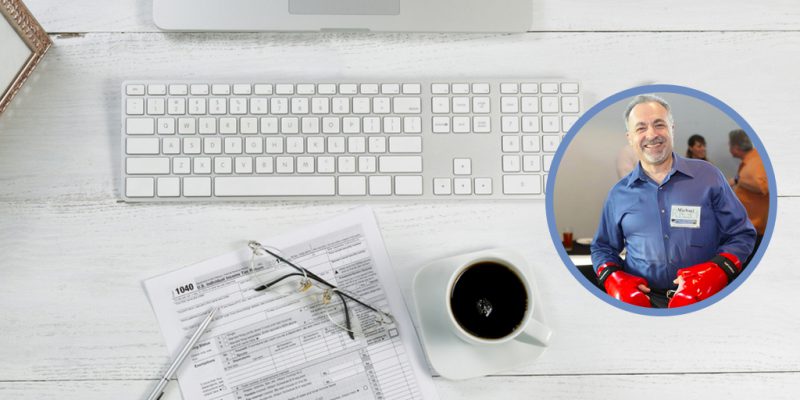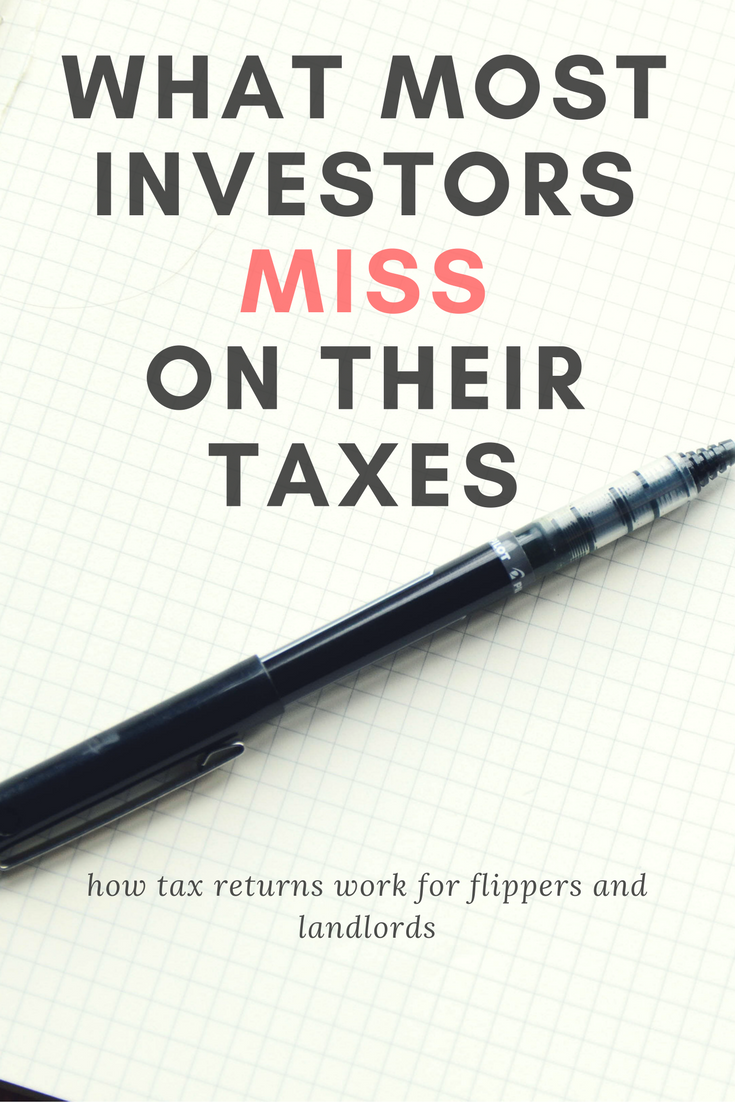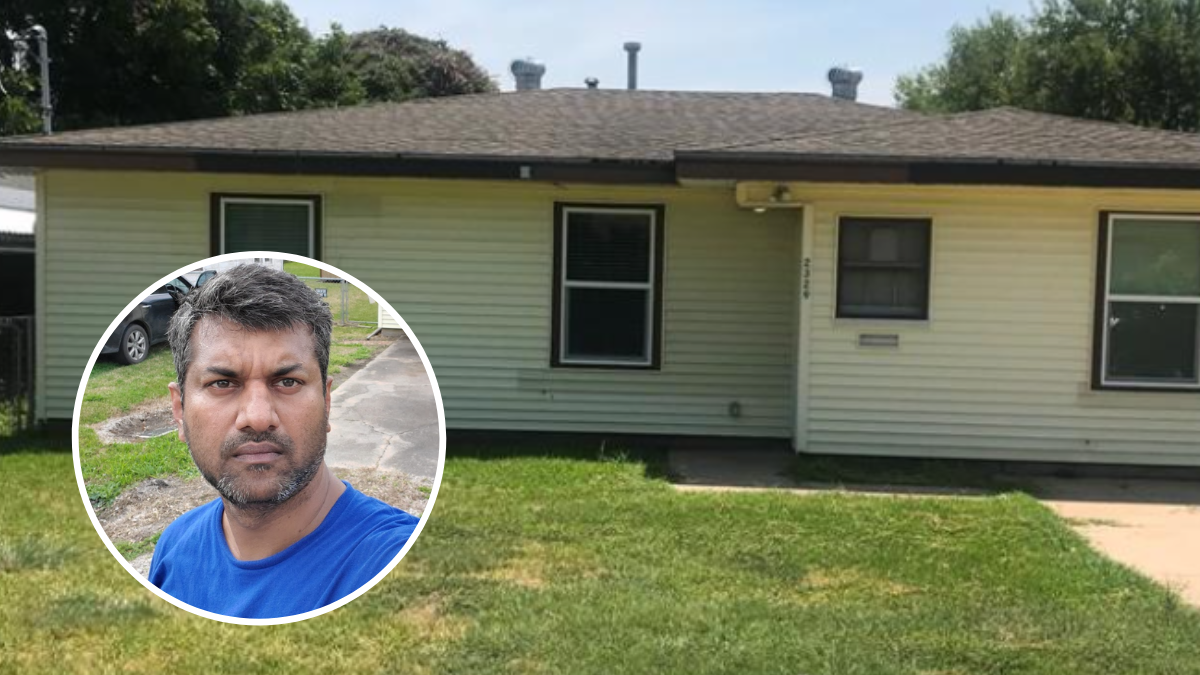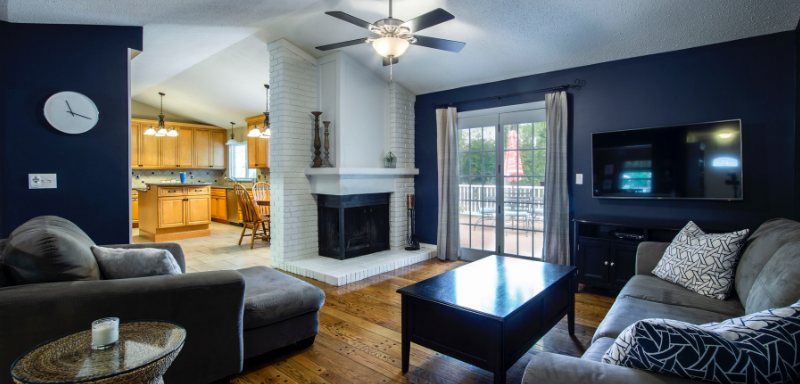What Most Investors Miss on Their Taxes
We prepare hundreds of returns every year exclusively for investors. A lot of new clients come to us after having returns prepared themselves or somewhere else…
Usually those returns are complete garbage.
The reason why is because of fundamental misunderstandings of how tax returns work for flippers and landlords. This article is going to clear up those misunderstandings.
How to Prepare Taxes for Flippers
Principle #1: When to Deduct
The key here is this: everything happens at one point in time.
That’s the time when you sell a deal. If you:
Have a flip that you bought late in 2016…
and it’s still on the market right now…
and you plan to sell it in March of 2017…
Then tax-wise, everything related to that flip happens in March 2017.
If you did construction in 2016? Doesn’t matter—if it’s sold in 2017, then it counts for 2017. Stack it, keep it. It’ll accumulate and grow, but it stays on that shelf assigned to the property. All rehab, holding, funding costs—all of that grows, grows, grows, grows until March 2017 when you sell it.
When you sell the house in March 2017, then you subtract that pile of expenses from the sale price (which hopefully results in a positive profit). So again, in 2016 you really will have nothing related to that deal at all if you are doing the return.
The example I always bring up is people saying, “Well, but I spent that money in 2016. I want the tax benefit in 2016.”
First of all, it doesn’t work that way.
Second, let’s play that game:
Let’s imagine it did work the way you, the investor, want it. You want to deduct it in 2016, so let’s imagine what happens.
In 2016 you are buying your flip. You spent $70,000 buying the house and then another $30,000 to fix it, so you spent a total of $100,000. So, in 2016 we have $0 income because nothing was sold, and now we have $100,000 worth of expenses. We have negative $100,000 for 2016. What is good about that is that you probably erased your complete tax liability for 2016. You have to pay $0 to Uncle Sam.
So far so good. Then we come into 2017, and in March 2017 you sell the property for $130,000. You have a $130,000 sale price and absolutely nothing to deduct against it because it was already deducted in 2016. So now, you are going to pay taxes on $130,000. That’s where that “OOPS” comes in. In 2016 we would have no income, and tons of deductions. In 2017, tons of income and no deductions. It doesn’t make any sense.
The right thing to do is wait until you sell the house, and then deduct everything.
That is principle #1 to remember when you do taxes for flipping. All expenses related to a property stay untouched until the property is sold.

Principle #2: Business Buckets
The second misunderstanding investors and tax preparers often have is that every expense that you have in that business falls into one of the two buckets:
It’s either related to a project (to the specific flip you are working on), or it’s general business overhead expense.
What are general business overhead expenses?
Those are expenses for your marketing. Expenses for having your virtual assistance. Expenses for your technology, like your computers, internet, phones, whatever else you need. Your expenses for education, memberships in clubs, all of that stuff. All of the money you pay that is not specifically tied to a property. Those are business overhead expenses. Those are deductible when they are incurred.
If the property was sold in 2016, then yes, the expenses would go against the sales price. If not, then those expenses are deferred. They are in a holding pattern until it’s eventually sold in 2017.
Those are the two things I wish every investor understood.
To recap: you have two types of expenses, general and property specific. General are always deducted as they happen, and property specific are always waiting until the respective property is sold.
Other Misunderstandings
With traditional tax preparers, the problem is that they don’t understand those two things that we just discussed.
They want to treat your business the same way as a cash-based business. (By cash based, what I mean is not working on long term projects.)
For example, tax-wise, being a Realtor is a very simple business. With a fundamental understanding of how taxes work, anyone could prepare taxes for a real estate agent. When a Realtor receives commissions, that’s income. Whenever they have an expense, it’s a deduction. It’s very simple. For 2016, you add up all the Realtor commissions, and subtract all of the expenses. Of course there are some trickier issues even with Realtors, but basically it’s that simple.
That’s the same way it would work with wholesalers. The way wholesalers operate tax-wise is exactly the same way Realtors operate, only instead of Realtor commissions they report assignment fees. All assignment fees you receive during 2016 make up your income. All expenses are deducted against that.
When it comes to flipping, that’s where the confusion kicks in. People who don’t specialize in real estate usually do not understand the distinction.
Problems When Preparing Taxes for Landlords
Principle #3: You Do Not Have a Rental Business Until You Have Rentals…
Now let’s consider the biggest points of confusion when we start talking about rentals…
The whole point of the business is that you are in the business of renting out property.
And surprisingly (to some), what that means is that you have to have properties to rent to be in business!
You can’t be in the restaurant business if you do not have a restaurant, so you cannot be in the rental business if you do not have a rental. It should be logical and simple, but there is a lot of confusion here.
If you started in 2016, and went around as an investor spending a bunch of money on taking classes, paying for mentoring, paying for your equipment, setting up your systems, doing all kinds of preparation to buy the property, but you did NOT buy a property in 2016, then you were not an investor in 2016. In your mind you were an investor, but legally you were not.
Why?
Because you did not have rental property.

Again, you cannot be in the business of renting rental property without having rental property.
If 2016 was your first year of going into the investment business but you didn’t buy any rentals yet, then you don’t even have a business return for 2016.
“What happens with these expenses then? Does it mean I don’t get any benefit?”
You will, but not in 2016. All of those expenses have to be stacked up, put on the shelf, and deferred. They will be useful when you work on your 2017 return, but not in 2016.
These are the problems we see when we look at returns prepared by traditional preparers from franchise places who don’t understand the real estate business. They say, “Okay, you were in a business, you had expenses, let’s deduct it.” What it does is create a return that shows $0 income, and a bunch of expenses. So, what is good about that, and why is it a problem?
What is good is that you have deductions, so that reduces your taxes for the year 2016 and nobody will complain about that. My taxes for 2016 are lower, and justifiably so because I spent money. So far, so good.
Now, I said nobody will complain. Nobody except the IRS, because that’s a huge red flag for the IRS.
Every time the IRS looks at that, they think, “Wait a second…there is a business with $0 income and a bunch of expenses…” That’s not good. That is typically the most common flag for an IRS audit. So if the audit happens, the first question would be, “What kind of business do you have?” Then you explain that you are a real estate investor trying to buy rental properties. They stop you right there. Did you have any rentals in 2016? No?
End of conversation, game over, you lost.
Even if you hire somebody like me with 20 years of experience fighting the IRS, I cannot win that battle for you. It’s a no-win battle. If you are in the business of having rental properties and you had none, those expenses do not belong on that return.
Principle #4: How Losses from Rentals Work
The second issue is a misunderstanding of how losses from rentals work when you also have a full-time job. A lot of new investors are in that situation.
They, wisely, keep their day job and start to build rental portfolios on the side so that one day they can become full-time real estate investors. Nothing is wrong with that at all, but we need to understand how taxes work, because when gurus and internet articles are your education, it’s very often misleading.
Let me explain:
Let’s say we charged $1,000 a month for rent, so we have $12,000 of income from that property for the year. Then we subtract all expenses that we had for that property. We start with the mortgage, then we have property taxes, then we have insurance, repairs, maintenance, maybe some utilities, maybe commission to a leasing agent, maybe tenant screening costs.
Let’s say that when you add up all of these expenses, you have $11,000 worth of expenses for the year. We have $12,000 in rent, minus $11,000 of expenses.
Here comes the first plus. In a traditional business, you would have $1,000 in profit and would pay taxes on that $1,000.
Not so in real estate.
In real estate, when you have rental properties, there is something called depreciation. Depreciation is an accounting gimmick because you are deducting something for which you don’t write a check. You never write a check that says, “here is my $2400 for my monthly or annual depreciation.” (By the way, if you ever wrote a check, then you got scammed…Ha!)
You don’t actually pay for depreciation so to speak, but it’s something you’re allowed to deduct. I don’t feel like we really need to discuss the technical side of that, but let’s just take the simple approach.
Every time you have rental property, you’re allowed to deduct a significant amount of money every year for depreciation. It’s a way to write off your initial purchase price. So, if you put $100,000 into that property including acquisition and rehab and whatnot, you don’t get to write off $100,000 when you bought it. Instead you use depreciation, so every year you deduct, say, $3,000, which is called depreciation. It’s essentially a substitute for deducting the cost of buying the property.
So going back to our example, we have $12,000 in rent a year, $11,000 in expenses, and now we get $3000 more as depreciation. Now we have not $11,000, but $11,000 + $3,000. That’s $14,000 of expenses against $12,000 of income.
Now we have a negative result. It’s highly unusual. No other business operates that way.
That’s why it’s so confusing for a regular tax preparer and for people who do it themselves in TurboTax. In every other business, you pay tax on actual cash that you put in your pocket. Again, if you were a Realtor and subtracted all your expenses against your commissions and that’s a positive number, that’s your profit, and that’s what you pay taxes on.
In a rental business, you may have positive cash flow, yet because of depreciation on the tax return, it shows you are losing money. That’s nothing to worry about. It’s completely legal. It’s not breaking any rules. That’s the way the system works, so you can be making money, but on paper you’re losing money.
What it means is you are getting richer by pocketing cash flow.
At the same time, when the IRS comes in, you’re saying you’re losing money, which reduces your taxes. It’s an excellent situation to be in. You are benefiting from both sides of the coin. You’re putting cash in your pocket, and keeping additional cash by saving on your taxes. That’s what people promote as one of the significant benefits of owning real estate.
But…it doesn’t work that way for everybody.
What they fail to explain is that that tax benefit does not work that way for everybody.
For people who have a relatively high income, it’s different, and I stress the word relatively, because in the mind of Uncle Sam, a family of two that makes $150,000 combined is considered relatively high income.
We can laugh about it, but that’s the government’s view of a high income. So if you are a married couple, and one of you makes $50,000, and the other makes $100,000? That’s $150,000 combined. Or if you are a single person working as an engineer, doctor, some other profession, you make $200,000? You are in that group. What it means is you cannot offset your income with those rental losses coming from depreciation.
Again, I’ll repeat it: if you are in that “high” income zone, you are not allowed to take those losses as gains to your salary, so your taxes do not go down.
Instead, those losses are deferred. They don’t disappear. You accumulate them from year to year until you eventually sell the rental. When you sell, you’ll be able to catch up with those losses; but this current year, your taxes won’t go any lower.
As long as you are in that high income zone, your taxes will not go lower in the current year. Those losses will be suspended.
So, that’s it. Those are the most common mistakes investors and non-specialist tax preparers make on their taxes. To review, here are the most common misunderstandings for flippers and landlords doing their taxes:
- Knowing when you can and can’t deduct expenses.
- Understanding what business buckets your expenses belong in.
- Understanding that real estate investing is very different from traditional businesses that are cash-based.
- When you start your business, you cannot deduct anything or even report your business on your taxes until you get at least one rental.
- Because of depreciation, it’s possible for investors to report negative income and significantly reduce their taxes burden.
- If you earn a relatively high income, you may not be able to benefit from annual losses from rentals in the current year because of a quirk in the law.








